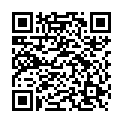|
|
|
| Module code: PIBWN35 |
|
2SU (2 hours per week) |
|
2 |
| Semester: 5 |
| Mandatory course: no |
Language of instruction:
French |
Assessment:
Written examination (final exam)
[updated 19.02.2018]
|
E2520 (P200-0026) Electrical Engineering and Information Technology, Bachelor, ASPO 01.10.2018
, optional course, non-technical
E2842 (P211-0298) Electrical Engineering and Information Technology, Master, ASPO 01.04.2019
, optional course, general subject, course inactive since 30.03.2021
KI657 Computer Science and Communication Systems, Bachelor, ASPO 01.10.2014
, semester 5, optional course, non-technical
KIB-FRA1 (P200-0026) Computer Science and Communication Systems, Bachelor, ASPO 01.10.2021
, semester 5, optional course, non-technical
KIB-FRA1 (P200-0026) Computer Science and Communication Systems, Bachelor, ASPO 01.10.2022
, semester 5, optional course, non-technical
MAB.4.2.1.16 (P200-0026) Mechanical and Process Engineering, Bachelor, ASPO 01.10.2013
, semester 5, optional course
MST.FR1 (P200-0026) Mechatronics and Sensor Technology, Bachelor, ASPO 01.10.2012
, semester 5, optional course
MST.FR1 (P200-0026) Mechatronics and Sensor Technology, Bachelor, ASPO 01.10.2019
, semester 5, optional course
MST.FR1 (P200-0026) Mechatronics and Sensor Technology, Bachelor, ASPO 01.10.2020
, semester 5, optional course
PIBWN35 Applied Informatics, Bachelor, ASPO 01.10.2011
, semester 5, optional course, not informatics specific
PIB-FRA1 (P200-0026) Applied Informatics, Bachelor, ASPO 01.10.2022
, semester 5, optional course, not informatics specific
PIB-FRA1 (P200-0026) Applied Informatics, Bachelor, SO 01.10.2026
, semester 5, optional course, not informatics specific
MST.FR1 (P200-0026) Mechatronics and Sensor Technology, Bachelor, ASPO 01.10.2011
, semester 5, optional course
|
30 class hours (= 22.5 clock hours) over a 15-week period.
The total student study time is 60 hours (equivalent to 2 ECTS credits).
There are therefore 37.5 hours available for class preparation and follow-up work and exam preparation.
|
Recommended prerequisites (modules):
None.
|
Recommended as prerequisite for:
PIBWN36 French II
[updated 02.11.2007]
|
Module coordinator:
Dr. Julia Frisch |
Lecturer:
Dipl.-Dolm. Margret Wilhelm
[updated 08.07.2007]
|
Learning outcomes:
The courses French I and II are based on each other. In the course of the two modules, students will improve their professional French so that they advance from the desired entry level B1 to level B2 of the Common European Framework of Reference for Languages.
Based on a common level of knowledge and motivation amongst the students, the main objective of the language course is to refresh and develop existing French skills, as well as to reduce barriers to learning and negative attitudes towards language learning while strengthening confidence in one´s own foreign language competence. Subjects and situations that are relevant for the later professional career will be used to impart skills and knowledge that will enable students to communicate orally and in writing with colleagues and business partners in francophone countries.
To do so, all four skills (speaking, listening comprehension, reading and writing) will be trained equally using, in part, multimedia learning tools. Content development will be supported by the repetition of a basic vocabulary and the relevant grammatical structures, also in self-study.
The course takes a communicative and pragmatic approach that particularly promotes communicative competence in job-relevant situations through the use of role playing and situational dialogues. This also includes intercultural aspects that raise the students´ awareness of cultural differences and enable them to assert themselves in specific situations.
[updated 24.02.2018]
|
Module content:
Establishing contact
- Greetings
- Introducing oneself and others
- Receiving someone
- Presenting a company
Job profiles and the workplace
- Company-internal communication:
- Describing professional activities and priorities
- Company structure and workflow
- Raising one´s own concerns
- Negotiating proposals
Written communication
- Formal aspects (correct form of a letter, layout etc.)
- Formulating a letter of inquiry
- Formulas for greetings and closings, taking into account different stylistic levels
In addition, we will concentrate on basic grammatical structures. Students are expected to work on and expand their basic vocabulary independently in self-learning phases in the multimedia computer language laboratory.
[updated 05.10.2020]
|
Teaching methods/Media:
Teaching and learning materials (print media, slides, audio-visual teaching materials), multimedia learning software specially compiled for the learning group.
[updated 19.02.2018]
|
Recommended or required reading:
- PONS Kompaktwörterbuch für alle Fälle - Französisch-Deutsch/Deutsch-Französisch. Vollständige Neubearbeitung 2002, Klett-Verlag, Stuttgart, ISBN 3-12-517209-8
- M. Grégoire, O. Thiévenaz: Grammaire Progressive du Franšais - Niveau intermédiaire. (Deutsche Ausgabe); Klett-Verlag, Stuttgart, ISBN 3-12-529873-3
Students will receive a list of recommended teaching and learning materials.
We recommend the following multimedia learning program for independent learning:
Oberstufe Französisch. 6000 Vokabeln zu allen Themen. Vokabellernprogramm auf CD-ROM mit Sprachausgabe. Klett-Verlag, Stuttgart
[updated 19.02.2018]
|
Module offered in:
WS 2024/25,
WS 2023/24,
WS 2022/23,
WS 2021/22,
WS 2020/21,
...
|


